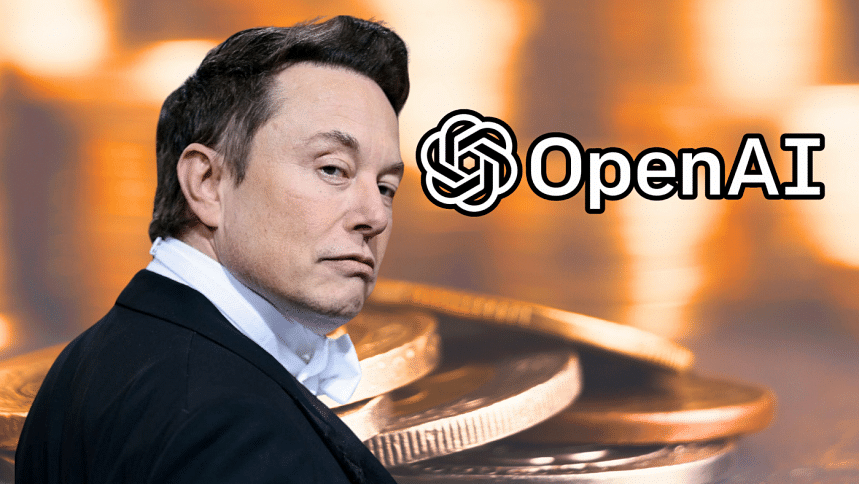Elon Musk vs OpenAI is founder’s syndrome gone mad

Artificial intelligence is not a normal technology. This maxim guides potentially trillions of dollars of capital, investor glee and pain, and the clout of OpenAI boss Sam Altman and his nemesis Elon Musk. Their years-long feud cranked up on Monday, when the Tesla boss submitted a $97.4 billion bid for the non-profit, controlling the ChatGPT maker. It's a perfect illustration of AI absurdity meeting founder's syndrome.
Altman and Musk co-founded OpenAI as a charity in 2015 with the ostensible mission of safely guiding an existentially dangerous technology. But building ever more powerful models required more capital than could be gleaned from donations. Musk sought influence and control in return for his resources, OpenAI claims; Altman instead set up a "capped-profit" subsidiary, soliciting investments from Microsoft and others. The pair split, acrimoniously.
Musk is accustomed to getting his own way. His one major setback was being ousted as boss of payments firm PayPal in 2000. That pales next to taking control of Tesla, engineering a merger with his fellow company SolarCity, "negotiating" a $56 billion pay package, and upping sticks from Delaware when a judge called foul. And, of course, he sued OpenAI - now in a precarious position as it attempts to transition into a for-profit company. How the non-profit arm, which still holds a controlling stake, is valued in the shift is a delicate legal matter that Musk could muddy.
This is textbook founder's syndrome: when an autocratic boss demands total, unchallenged control. Musk's case is super-charged by investor largesse. Shares of $1.1 trillion Tesla trade at an eye-watering 128 times expected earnings for the next 12 months, according to LSEG, conferring vast wealth on its boss. These runaway hopes are fueled by AI, which Musk promises Tesla will lead in. His separate artificial intelligence business, xAI, is valued at $50 billion.
Yet Tesla's self-driving cars and humanoid robots are yet to materialize. OpenAI might seem a more solid bet: actually existing AI application ChatGPT rocketed to 100 million weekly active users at speed; it anticipates $11.6 billion in revenue this year, the New York Times reported. But its $157 billion valuation already relied on aggressive growth to $100 billion in sales, and the company may bag a $300 billion price tag from SoftBank. The significance of the number Musk and a consortium of investors put on the arm controlling this value, a hazy extrapolation of the worth of a nascent technology, seems limited to its usefulness in gumming up OpenAI's conversion.
What is clear is that Altman, having parried Musk once before surviving his own near-coup, is also not used to hearing no. A showdown seems inevitable. A contest over OpenAI is one over the avatar of the market mania that cemented both men's positions. What self-respecting founder could let it go?
A group of investors led by Elon Musk has submitted a $97.4 billion offer to acquire the non-profit that controls OpenAI, the developer of chatbot ChatGPT.
Musk, the CEO of automaker Tesla and rocket company SpaceX, co-founded OpenAI with current boss Sam Altman in 2015. Musk departed the artificial intelligence firm in 2018. He has since sued OpenAI, Altman and fellow founder Greg Brockman in a lawsuit that charges the company with "perfidy and deceit" of "Shakespearean proportions."

 For all latest news, follow The Daily Star's Google News channel.
For all latest news, follow The Daily Star's Google News channel. 



Comments